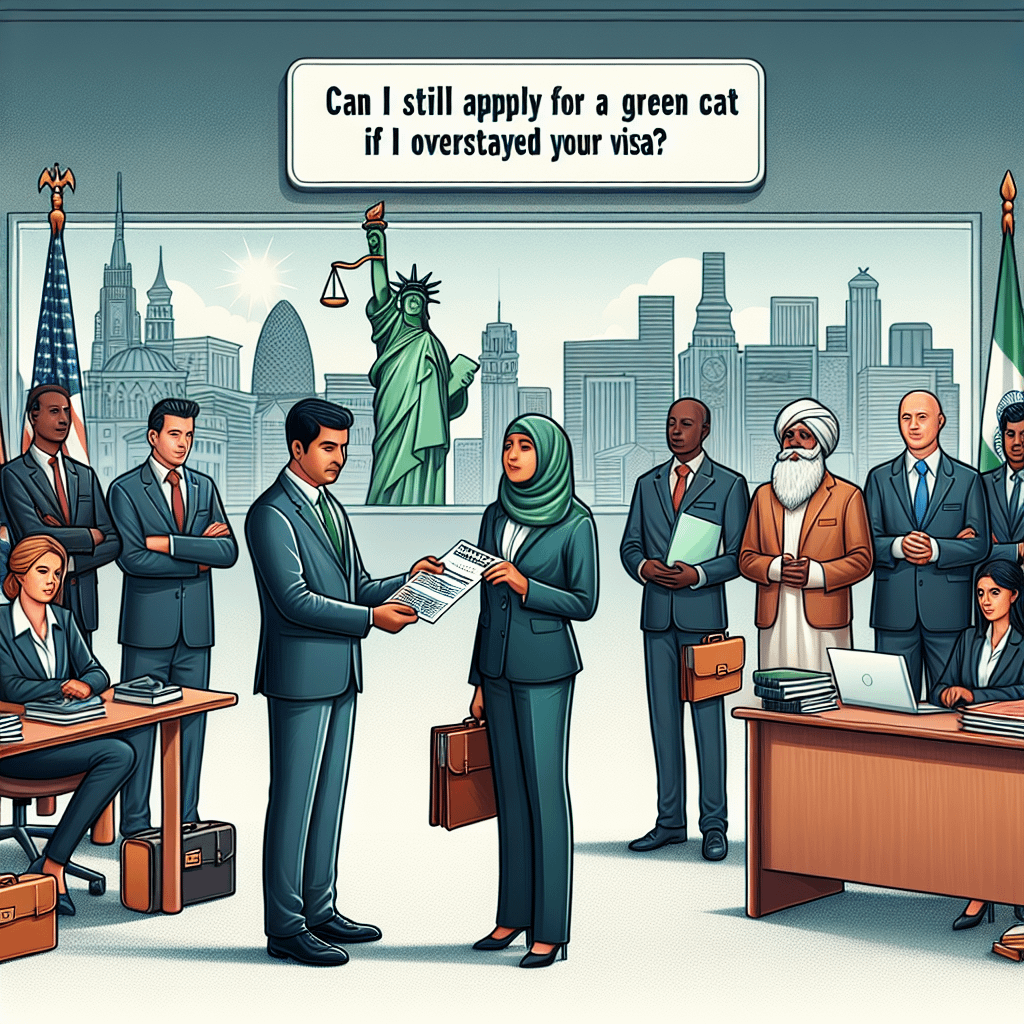Overstaying a visa is a common predicament that many find themselves in, often leading to confusion and concern about their immigration status in the United States. So, if you’re wondering whether you can still apply for a green card after overstaying your visa, you’re not alone, and there’s some good news. It’s still possible to apply for a green card, though the process can become a bit more complicated.
Understanding Visa Overstay
First, let’s clarify what it means to overstay a visa. If you enter the U.S. on a visa, such as a tourist (B-2) or a temporary work visa (H-1B), you’re allowed to remain in the country for the duration of your visa’s validity. Overstaying occurs when you remain in the U.S. beyond the date authorized by your visa.
The Impact of Overstaying
Overstaying a visa can have several consequences:
1. Departure and Re-entry Bars: If you overstay for more than 180 days but less than a year, leaving the U.S. can result in a three-year ban on re-entry. If the overstay is more than a year, that ban can extend to ten years.
2. Ineligible for Certain Adjustments: Some adjustments and forms of relief that might have been available become inaccessible once you overstay your visa.
3. Impact on Future Visa Applications: A history of overstaying can affect future visa applications, making it more difficult to obtain a visa from outside the U.S.
Despite these challenges, several pathways might still be open for you to apply for a green card.
Obtaining a Green Card After Overstaying
1. Through a Family Member: If you are the immediate relative of a U.S. citizen—such as a spouse, parent (if you are under the age of 21), or unmarried child—you may be eligible to adjust your status to permanent resident (green card holder) even if you have overstayed. Immediate relatives are given preferential treatment under U.S. immigration laws, which means you can adjust your status without leaving the country, regardless of your overstay.
2. Through Employment:
In specific circumstances, you might still be able to obtain a green card through employment. However, this often requires leaving the U.S. for consular processing, which can trigger re-entry bars as mentioned earlier. Some exceptions can apply, such as qualifying for a waiver of inadmissibility, but these can be complex and typically require legal assistance.
3. Through Special Programs or Circumstances:
There are special categories or programs like the U visa for victims of crimes or asylum, which may waive the visa overstay issue. The Violence Against Women Act (VAWA) also allows certain abused family members of U.S. citizens or lawful permanent residents to apply for a green card without leaving the U.S., even in cases of overstay.
Practical Tips
- Consult with an Immigration Attorney: Given the complexities of immigration law and the individual nuances of each case, it’s often beneficial to consult with an experienced immigration lawyer. They can provide tailored advice and help navigate the various legal pathways available to you.
- Gather Documentation: Start compiling any documentation that evidences your life in the U.S., such as employment records, lease agreements, or school enrollment papers. These can be crucial when demonstrating your ties to the U.S. and eligibility for adjustment of status.
- Avoid Travel: If you’ve overstayed, remain in the U.S. until you can clarify your status. Leaving could trigger the aforementioned re-entry bans, complicating your path to obtaining a green card.
Overstaying your visa doesn’t necessarily close the door to becoming a permanent resident, but it does complicate the process. Understanding your options and obtaining the right guidance can put you on the path to resolving your immigration status.








